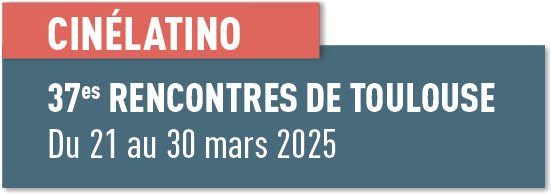Selection:
Director:
Country:
- Mexico
Format:
Type:
Film exhibited in Toulouse:
Las Lágrimas, Fiction Feature Film.
Bright Future, Rotterdam 2013/ Cartagena Film Festival 2013 / Morelia Film Festival 2012. Carte Blanche Award at the 2012 Locarno Film Festival.
Foreseen cast:
María Onetto, Fernando Tielve
Script writer(s):
Synopsis:
LISBOA is a portrait of two people in search of a family, in search of a home. Chance will make them cross paths.
Helena (55) lives by herself in a huge house owned by her best friend, who doesn’t make her pay rent. Contact with the outer world is ever more difficult for her, the house becomes her lair. She is a teacher, but that doesn’t satisfy her anymore. Her days are spent in between the few classes she gives at the university, staying at home and drink as much liquor as she can.
Her friend the owner has decided to rent the bungalow in the garden to improve their economic situation. Helena is dealing with a very strong crisis, which makes her umcomfortable in her own skin. She tries to stop the moving of the new tenant without success. Santiago, a young Spaniard man who is coming to study in Mexico arrives to upset the life of Helena. Santiago has a strong conflict of his own, a void in feeling part of a family, resulting from the distance he has felt with his parents since he can remember. Despite that he conveys a warm and friendly personality. At first their convivence is tense and hostile. Helena imposes a barrier between them causing the discomfort of Santiago.
Helena gives up her teaching job and because of the time spent stuck in the house she starts to see Santiago in a new light, feeling empathy with him.
Both of them develop a strong bond based on their loneliness and alcohol. A complicated relationship starts between them, where at times they act like mother and son, then as accomplices and some other times with a strong sexual tension.
It is difficult to categorize the relationship between them. Sharing the same space for so long evolves into a codependency that affects Helena the most. At the height of their relationship Santiago discovers that Helena has kept a secret: the death of her son years ago during a trip to Portugal.
Santiago walks away silently thinking he can not replace anyone's son. Helena begins to have a new light in her eyes.
Visual concept:
Visually the film will be in service to the characters, framing them in an esthetic point of view as much as possible. The camera is a close and vouyeristic witness to the relationship between Helena and Santiago, it stays with them relentlessly. LISBOA occurs almost completely inside the house. It is a space that at times feels suffocating and other times must feel liberating. The moments outside the house must feel the same way. The emotional state of the characters informs how they will be seen by the camera, finding an organic balance between the style and the substance. I am reminded of the visual style of filmmakers such as John Cassavetes, Kelly Reichardt and Lucrecia Martel, whose sober storytelling is attractive and seems close to a story like LISBOA.







